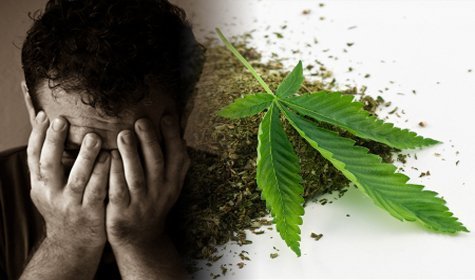There are almost 20 million veterans in the U.S. and Texas is home to 1.5 million of them. Now the Lone Star State is looking at medical marijuana to help veterans cope with debilitating issues, including PTSD.
Almost half of the U.S. population has access to medical marijuana. Just over 47 percent of the population lives in the 23 states that have legalized medical cannabis. Veterans in Texas are wondering why the second largest state in the Union is denying them the medical opportunities available to veterans in other states.
Roughly 120 people, mostly veterans, met this past weekend near Fort Hood in the city of Killeen to learn about how medical marijuana can help people suffering from pain and Post Traumatic Stress Disorder. The seminar, put on by the marijuana law reform group Texas NORML, was headlined by a doctor from Austin, veterans, and political activists. Major David E. Bass, U.S. Army, retired, is the Director of Veterans Outreach for Texas NORML, and he spends his time helping veterans and lobbying legislators about the need for a medical cannabis program. Bass believes that veterans should not be restricted to just addictive opiates and other narcotics just because of the geographical area in which they live.
Dr. Neeraj B. Shah, M.D., spoke about the many successful studies that showed that those who treated their PTSD with medical marijuana experienced better sleep and less anxiety. “The studies have not been sufficient though,” Shah stated, pointing out that often researchers are too restricted.
Around 120 people, mostly veterans, turned out for the Texas NORML Seminar for PTSD and Medical Marijuana.He points to a case where a researcher for the University of Arizona took interest in studying the effects of medical marijuana for PTSD. Dr. Sue Sisley, who was a clinical assistant professor in the college of medicine, got her study approved by the federal government, and obtained her own funding. However the university dragged its feet for much of three years before eventually firing her for her interest in the research.
Shah also pointed out that cannabis is non-toxic, and does not have the dangerous side-effects such as damage to organs which come with taking other prescribed narcotics. Also pointed out was the fact that where medical marijuana has been legalized, addiction rates for opiates fell.
Shah did however say that he does not recommend smoking it. While smoking may deliver fast acting relief, he said that it is healthier and more effective to consume cannabis through vaporization, tinctures, and edibles. There are also topical creams which can be applied directly to an area of the body which is experiencing pain.
“People want to help veterans, but often that help isn’t effective enough,” Shah stated.
Many veterans in the room felt that the Department of Veterans Affairs had failed them.
Heather Fazio, the Texas Director for Marijuana Policy Project, and also a coordinator of Texans for Responsible Marijuana Policy, addressed the audience, talking about the medical marijuana bill her group hopes to pass this legislative session. That bill will cover PTSD, among many other health issues, if passed.
She also spoke of the need for professionalism, and commended activists for putting their best foot forward when speaking with legislators.
Tristan Tucker, U.S. Navy, retired, gave a speech about the dire need for something to be done, saying that we are losing more veterans to suicide than anything else. “A veteran commits suicide every 68 seconds.” He wonder how many more would die as the state waits to pass medical marijuana legislation.
Last year Tucker was one of several veterans involved with an article put out by Texas Monthly, entitled “War Without End” which explored how medical cannabis could help veterans suffering from PTSD.
Jax Finkel, the Deputy Director of Texas NORML, stressed the need for people to register and get out to vote. Turnout in Texas has often been as low as 10 percent, making it very possible for a group of voters supporting marijuana as an issue to be effective at the polls.
Nationally, veterans vote in higher numbers than the general population. In 2012, seventy percent of veterans cast a ballot in that election, compared with 61.8 percent of all U.S. citizens 18 years and older.
There will be a citizen lobby day held on February 18, and Finkel encouraged everyone who could to come out and meet their representatives. Texas NORML will be putting everyone into teams, with each one getting an experienced leader to help them with talking to legislators about medical marijuana..
She also urged people to make phone calls, and write personal letters with individual perspectives on why marijuana laws in Texas need to change. She adds that being kind, giving factual information, and following up are the most effective ways to reach them.
One man in the audience reminded everyone that not just veterans suffer from PTSD. Many people who have experienced traumatic circumstances suffer from the disorder as well. He spoke of being stabbed several times as a teenager, which led him to be diagnosed with PTSD. He began medicating with marijuana and says that his symptoms were being relieved, however he was arrested for possession of marijuana.
Also speaking at the event were Destiny Young, the membership director for Texas NORML, and Malachi Muncy, a retired veteran who works with other veterans doing therapy through art.
Several local news outlets were on hand, including TV stations and newspapers. The event was featured on the evening news. Support for medical marijuana in Texas currently stands at 77 percent.
This article originally appeared at: http://txcann.com/2015/02/08/texas-veterans-show-support-for-treating-ptsd-with-medical-marijuana/

